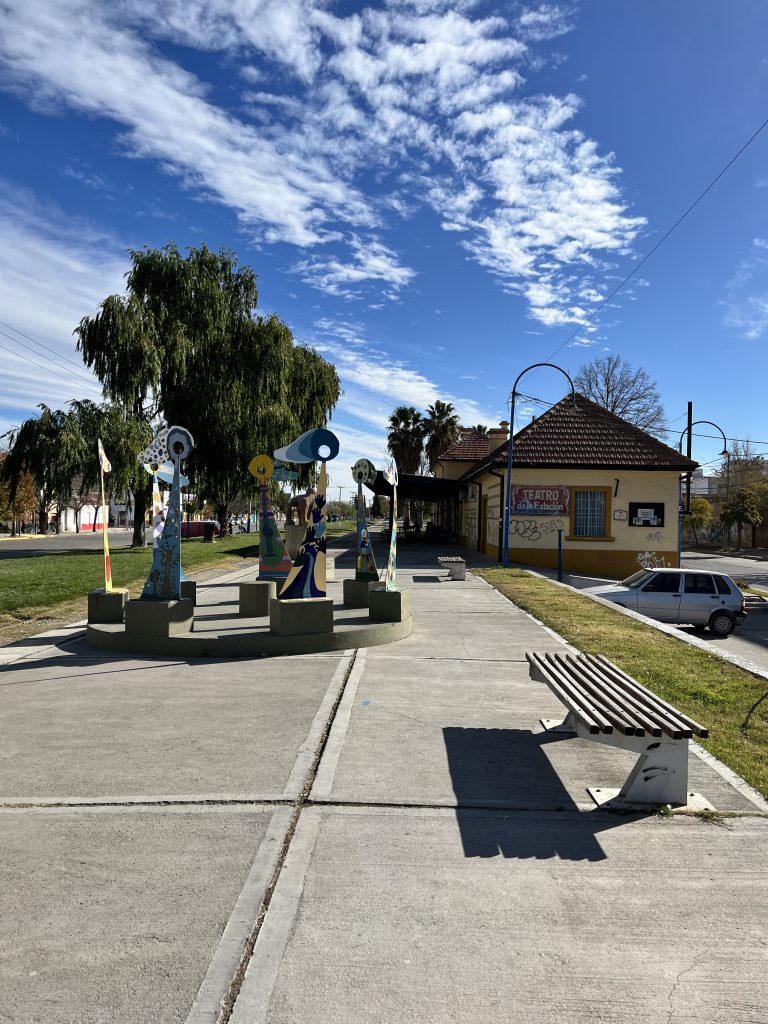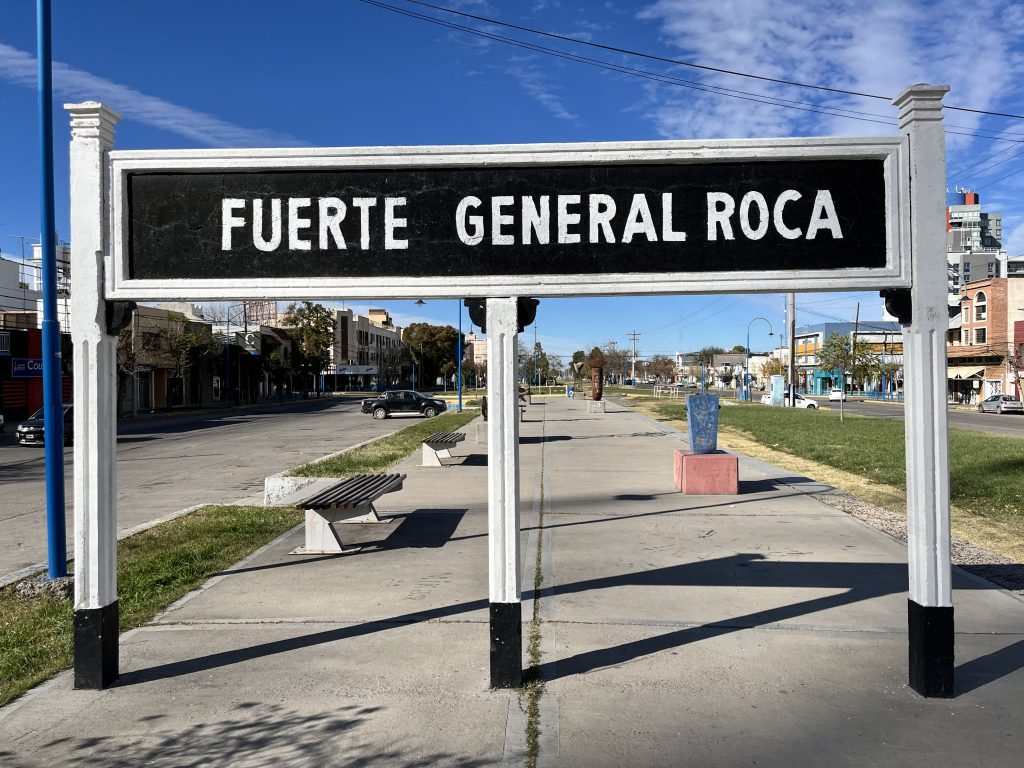5.5.2024
Today, I arrived in Fiske Menuco, officially known as General Roca, to carry out fieldwork.
The hostel where I will sleep tonight is located on Avenida General Roca. On the corner opposite the hostel, there is a park with a monument of General Roca. On the opposite corner of the hotel, there is an old station called General Roca Fort (Fuerte General Roca).
The old station housed the Library of Art and Popular Culture of the Station until April 2024, including the Mapuche educational space Menoco Nehuen. There, Mapuche children and their families were supported in strengthening their identity through various activities. On April 11th, the municipality closed the library, confiscated the books, and evicted the coordinators of the activities. The few spaces for activities aimed at celebrating indigenous identity were shut down. Yet people resisted. Refused to leave. They are still resisting. Later today would be activities for children in this now «occupied» space.
Fiske Menuco, also spelled Fisque Menuco, Fvske Menuko, Fvskv Menuko, or Fishcüg Menuco, means «water where the one who enters sinks» or «Cold water,» despite the variations in spelling. This was the name of the region until the infamous military campaign known as the «Conquest of the Desert» in 1879, led by General Julio Argentino Roca. This campaign brought a holocaust upon indigenous people, and made Julio A. Roca president of Argentina twice.
The perverse consequence of this campaigns of aimed extermination is the invisibilization, negation, and cancellation of indigenous people in Patagonia even today, while the excesive proud over the conquerors and those foreign settlers who violently took over indigenous territories. Like most places in Patagonia, the town of General Roca pays homage to them in its official narrative, street names, monuments, parks, and museum displays.


As I walk through the streets of Fiske Menuco on this sunny autumnal Sunday, a mural reminds me of its indigenous name. The sign on the closed library at the station serves also as a reminder of indigenous spaces.
I suddently remember the poem of the great poet, intellectual and activist Gloria Anzaldúa (she mixes Spanish and English)
[…]
Miro el mar atacar
la cerca en Border Field Park
con sus buchones de agua
an Easter Sunday resurrection
of the brown blood in my veins.
Oigo el llorido del mar, el respire del aire,
my heart surges to the beat of the sea.
in the gray haze of the sun
the gulls’ shrill cry of hunger,
the tangy smell of the sea seeping into me.
I walk through the hole in the fence
to the other side.
Under my fingers I feel the gritty wire
rusted by 139 years
of the salty breath of the sea.
Beneath the iron sky
Mexican children kick their soccer ball across,
run after it, entering the U.S.
I press my hand to the steel curtain—
chain link fence crowded with rolled barbed wire—
rippling from the sea where Tijuana touches San Diego
unrolling over mountains
and plains
and deserts,
this “Tortilla Curtain” turning into el río Grande
flowing down to the flatlands
of the Magic Valley of South Texas
its mouth emptying into the Gulf.
1,950 mile-long open wound
dividing a pueblo, a culture
running down the length of my body,
staking fence rods in my flesh,
splits me splits me
me raja me raja
This is my home
this thin edge of
barbwire.
But the skin of the earth is seamless.
The sea cannot be fenced,
el mar does not stop at the borders.
To show the white man what she thought of his
arrogance,
Yemayá blew that wire fence down.
This land was Mexican once,
was Indian always
and is.
And will be again
No one outside the victimizer and the victims could know for certain what was going on in the territory now known as Patagonia at the end of 1800.
But today our cell phones, social media platfomrs gives us «protected» windows from which to watch an unfolding holocaust (from the Greek “holokauston” which measn completely burned.
With no exception history repeats itself again and again.
Just this time, we are watching the horror as it is happening.
I stand by the closed local library. I think that tomorrow we will be condemned.
We cannot say that we did not know.
«The sea cannot be fenced,
el mar does not stop at the borders»….
I walked away the sleeping library at the siesta time….. my heart chants…. from the river to the sea….